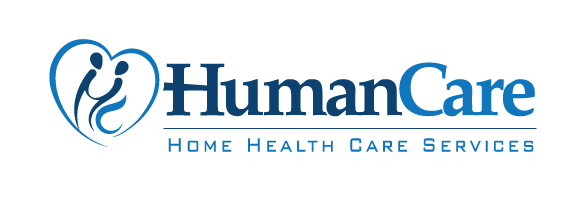What are the Three Major Jobs of a Caregiver?
Discover the Three Major Jobs of a Caregiver: Personal Care Duties, Household Management, and Medication Administration. Become an Exceptional Caregiver Today!

The Major Jobs of a Caregiver
Caregivers play a vital role in providing support and assistance to individuals who require help with their daily activities. There are three major jobs that caregivers are responsible for: personal care duties, household management, and medication administration.
Personal Care Duties
One of the primary responsibilities of a caregiver is to provide personal care to those in their care. This includes assisting with daily living activities and providing emotional support and companionship. Caregivers help individuals with tasks they may no longer be able to do independently, ensuring their well-being and comfort.
Some of the personal care duties performed by caregivers may include:
- Assisting with bathing, dressing, and grooming.
- Helping with toileting and maintaining personal hygiene.
- Assisting with mobility and transferring from one place to another.
- Providing emotional support and companionship to combat feelings of loneliness or isolation.
Household Management
In addition to personal care duties, caregivers also take on the responsibility of managing household needs. This involves tasks related to maintaining a safe and functional living environment for the individual under their care. Caregivers ensure that the home is well-maintained and conducive to the individual's comfort and safety.
Some of the household management tasks performed by caregivers may include:
- Managing household chores such as cleaning, laundry, and organizing.
- Assisting with meal preparation and ensuring proper nutrition.
- Maintaining a safe and hazard-free environment by removing potential risks.
- Managing appointments and coordinating transportation for medical and other essential needs.
Medication Administration
Caregivers also play a crucial role in medication administration, ensuring that individuals receive their prescribed medications in a safe and timely manner. This responsibility involves managing medication schedules, organizing medication supplies, and coordinating with healthcare providers.
Some of the medication administration tasks performed by caregivers may include:
- Managing medication schedules and reminders to ensure medications are taken as prescribed.
- Organizing medication supplies and maintaining accurate records of medication usage.
- Assisting with the administration of medications, such as administering oral medications or assisting with the use of medical devices.
- Coordinating with healthcare providers to ensure proper medication management and addressing any concerns or questions.
Caregivers fulfill these major jobs with compassion, dedication, and a commitment to providing the best possible care to those they support. Their efforts contribute significantly to the well-being and quality of life of individuals in need of assistance.
Personal Care Duties
When it comes to being a caregiver, there are three major jobs that encompass the responsibilities of the role. These jobs include managing personal care, assisting with daily living activities, and providing companionship and emotional support to clients.
Assisting with Daily Living Activities
One of the primary responsibilities of a caregiver is to assist individuals with their daily living activities. This can include tasks such as bathing, dressing, grooming, and toileting. Caregivers help their clients maintain personal hygiene and ensure their comfort and well-being.
In addition to physical assistance, caregivers also provide support in mobility and ambulation. This may involve helping individuals move around the house, providing assistance with walking aids, or ensuring that the environment is safe and accessible.
Emotional Support and Companionship
Emotional support is another essential aspect of caregiving. Caregivers provide companionship, reassurance, and empathy to individuals who may feel isolated or anxious [2]. They listen attentively, offer a comforting presence, and engage in meaningful conversations with their clients.
Building a strong rapport with clients is crucial in caregiving. Caregivers create a nurturing and trusting relationship that allows individuals to share their concerns, fears, and emotions. They provide encouragement, motivation, and a sense of security to help their clients navigate through challenging times.
Caregivers also play a vital role in advocating for their clients' emotional needs. They ensure that the care recipient's voice is heard, respecting their preferences and choices. By being a compassionate presence, caregivers contribute to the overall emotional well-being of their clients.
By providing assistance with daily living activities and offering emotional support and companionship, caregivers make a significant impact on the lives of those they care for. Their dedication and commitment are instrumental in enhancing the quality of life for individuals in need of assistance.
Household Management
Caregivers have a significant role in managing the household, ensuring that the environment is safe, comfortable, and conducive to the well-being of the care recipient. This involves taking care of various household chores and meal preparation.
Managing Household Chores
A caregiver's responsibilities often include managing household chores. They take charge of daily tasks such as cleaning, laundry, grocery shopping, and managing bills. By ensuring that the living space is clean and organized, caregivers create a comfortable and hygienic environment for the care recipient.
Caregivers may also assist in maintaining home safety by removing hazards, preventing falls, and ensuring that the living area is free from clutter. This helps to reduce the risk of accidents and promote a safe living environment.
Meal Preparation
Meal preparation is another crucial aspect of household management for caregivers. They are responsible for planning and preparing nutritious meals for the care recipient, taking into consideration any dietary restrictions or specific nutritional needs.
Caregivers ensure that the care recipient's meals are well-balanced, providing essential nutrients for their overall health and well-being. They may collaborate with healthcare professionals, such as dietitians or doctors, to create meal plans that align with the care recipient's dietary requirements.
In addition to preparing meals, caregivers may also assist with feeding, ensuring that the care recipient receives proper nutrition and hydration. This includes monitoring portion sizes and encouraging healthy eating habits.
By managing household chores and meal preparation, caregivers create a supportive and nurturing environment for the care recipient. These tasks contribute to the overall well-being and quality of life of those under their care.
Medication Administration
One of the major jobs of a caregiver is medication administration. This crucial responsibility involves two key aspects: medication management and organization, as well as coordinating with healthcare providers.
Medication Management and Organization
Caregivers play a vital role in ensuring that their loved ones receive the correct medications at the appropriate times. This involves managing and organizing medications to maintain a consistent and accurate medication regimen.
To effectively manage medications, caregivers must:
- Keep a record of all prescribed medications, including dosage instructions and any special considerations.
- Set up a system for organizing medications, such as pillboxes or medication reminder apps, to help prevent missed doses or medication errors.
- Regularly check medication supplies to ensure an adequate stock is available and refill prescriptions as needed.
- Establish a routine for administering medications, following the prescribed schedule and any specific instructions provided by healthcare professionals.
By carefully managing and organizing medications, caregivers help promote the health and well-being of their loved ones, ensuring they receive the necessary treatments as prescribed.
Coordinating with Healthcare Providers
In addition to medication management, caregivers also take on the responsibility of coordinating with healthcare providers. This involves establishing effective communication channels and advocating for the care recipient's needs.
Key tasks in coordinating with healthcare providers include:
- Scheduling and attending medical appointments, ensuring that the care recipient receives timely and appropriate healthcare.
- Facilitating effective communication between different healthcare professionals involved in the care recipient's treatment.
- Sharing relevant information about the care recipient's condition, symptoms, and medication regimen with healthcare providers.
- Asking questions and seeking clarification regarding medication instructions or treatment plans when necessary.
- Advocating for the care recipient's needs and ensuring that their preferences and concerns are heard and addressed by healthcare professionals.
By actively coordinating with healthcare providers, caregivers help ensure that their loved ones receive comprehensive and coordinated medical care.
As caregivers fulfill the vital role of medication administration, they contribute to the overall well-being and health management of their care recipients. Through careful medication management and effective coordination with healthcare providers, caregivers play a crucial part in supporting the health and treatment of their loved ones.




















